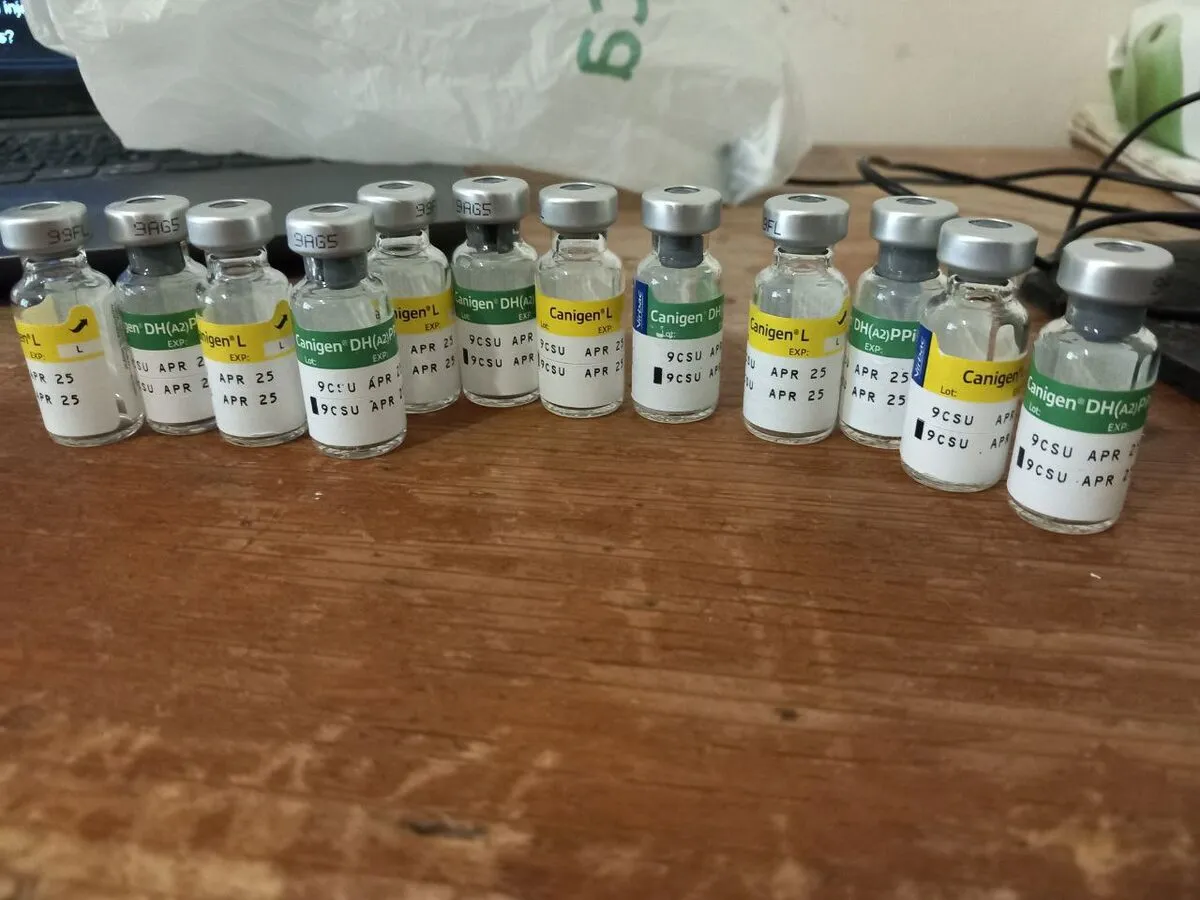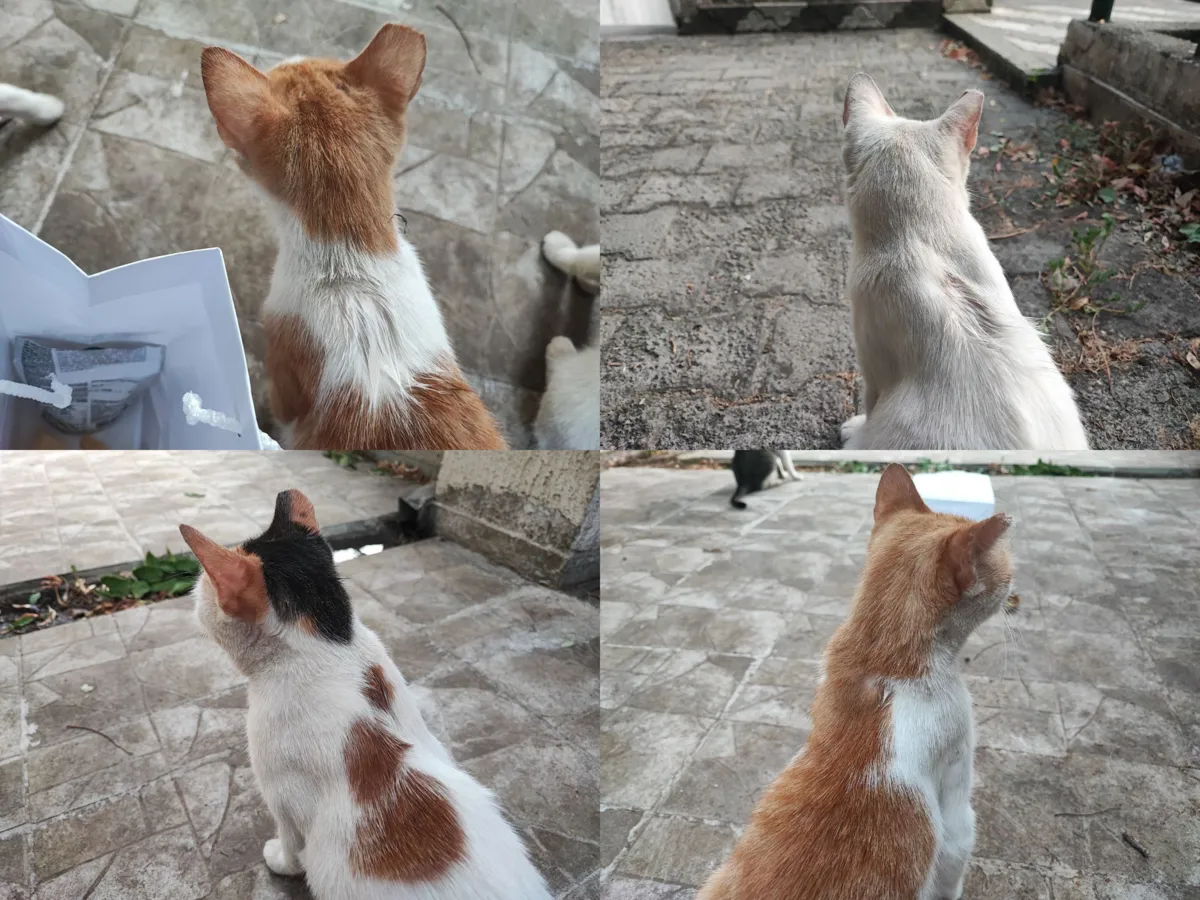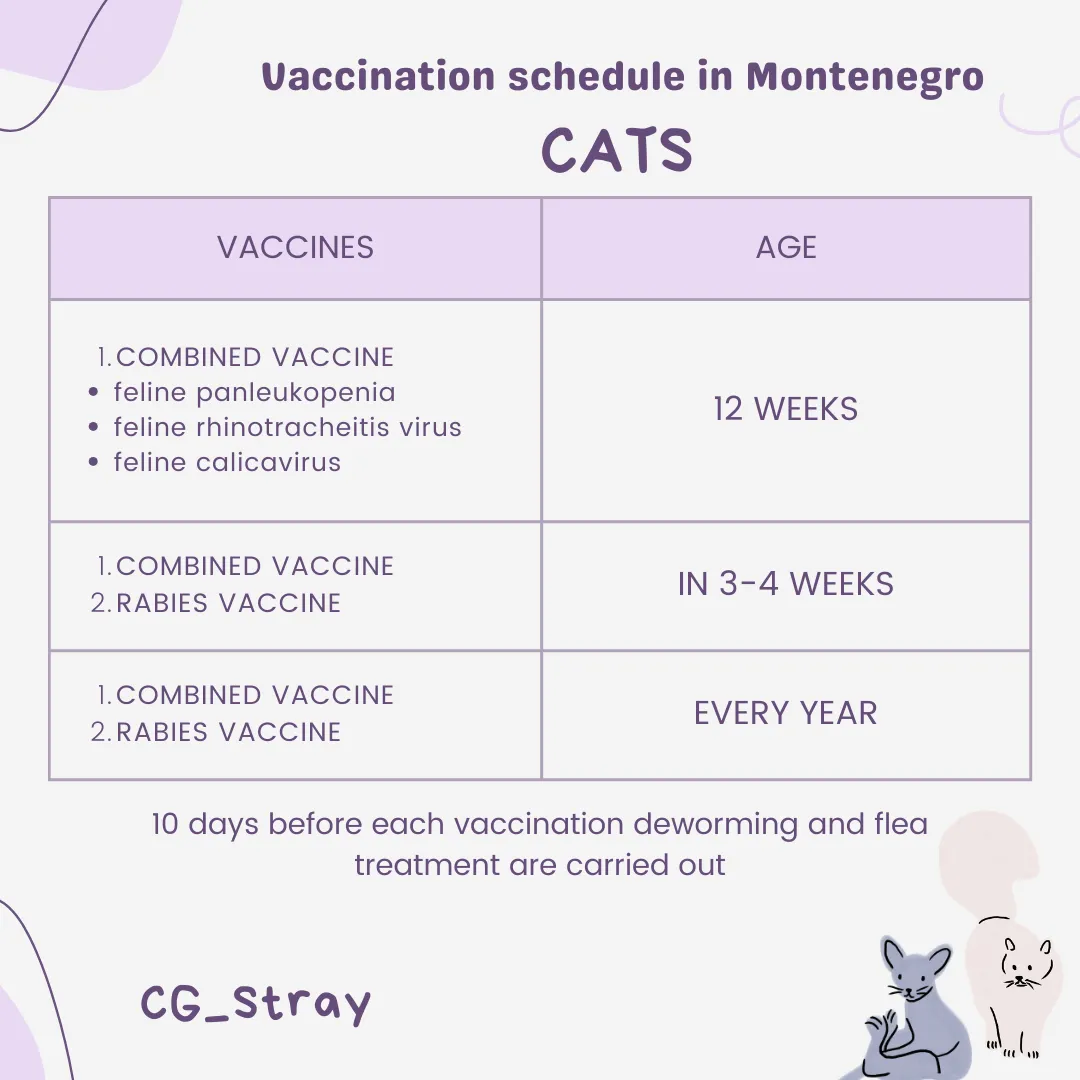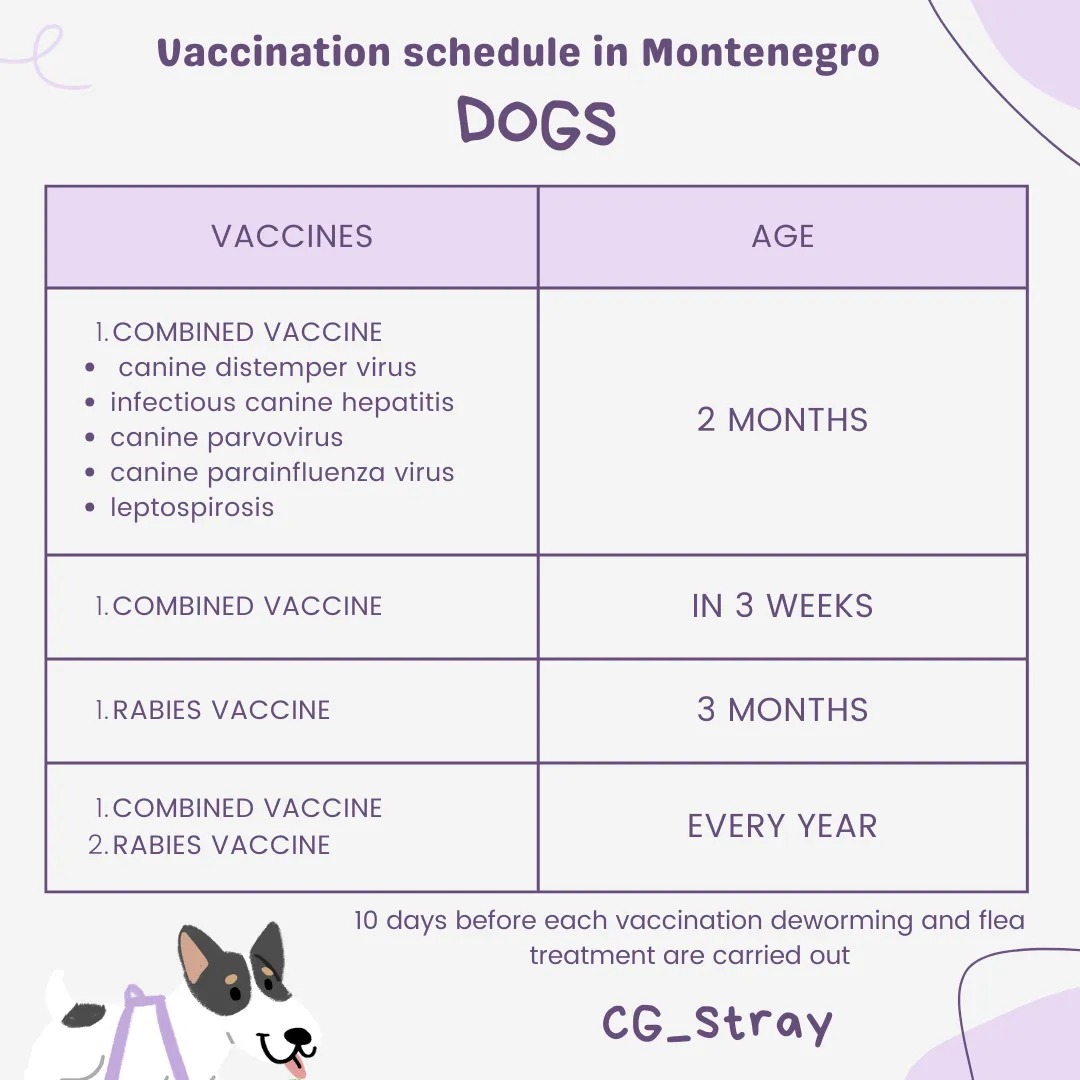Vaccination, Treatments, and Prevention: Keeping Your Pet Healthy in Montenegro
In the first part of this article we will tell you why it is important to vaccinate and treat even pets. And in the second part, there will be a recommended vaccination scheme for cats and dogs in Montenegro.
Vaccination is a crucial preventative measure for infectious diseases. It significantly reduces the risk of your pet contracting serious illnesses. After vaccination, the animal's immune system recognizes the disease, learns how to fight it off, and remembers this defense for future encounters.

Why is it necessary to vaccinate?
Vaccination helps ensure your pets live longer and healthier lives. Rabies is 100% fatal. It can also be transmitted to humans. Distemper and parvovirus are deadly in 80-85% of cases, causing agonizing deaths. Only a small percentage survive, often requiring lengthy and expensive treatment with uncertain success.
Vaccinations boost individual animal immunity, but also contribute to herd immunity. The more animals are vaccinated, the fewer carriers of infection exist. This means the risk of a non-vaccinated cat or dog contracting a disease from a stray population is significantly lower.
Even if your cat stays indoors, vaccination is highly recommended. You go outside, and chances are you interact with stray or outdoor pets.
EXCEPTION: If your pet exhibits signs of illness (fever, excessive eye or nose discharge, lethargy, loss of appetite, vomiting, or diarrhea), immediately seek veterinary care instead of vaccination.
Parasite Treatment.
Even indoor pets are at risk of parasites, as they can easily be brought in on shoes, clothing, or through other means. Regular parasite treatment is crucial to protect your pet's health.
Parasite Prevention: Treatment for external and internal parasites prevents various health problems, from allergic reactions to serious diseases, and also reduces the risk of human infection.
Certain diseases are spread by insect bites (mosquitoes, ticks, etc.). Most of these diseases are treatable in their early stages (within days of the bite), before symptoms appear. Once symptoms manifest, treatment is often complex, expensive, and may not always be successful.
Treatment Schedules: The frequency of treatment depends on the type of product (drops, tablets, collars) and the length of the warm season. Protection lasts from 4 to 12 weeks (check product instructions). Repeat treatment if the season continues after the protection period expires. Treatment is also recommended 10-14 days before each vaccination.
Drops, tablets, or collars (some people use a combination) protect against Leishmaniasis, Piroplasmosis, Dirofilariosis, and other diseases.
The cost of treatment is significantly lower than the expense of treating these diseases, which can involve hospitalization and complex care.
"Wet Paddle Celebration, or a volunteer's paycheck." - Ekaterina G

Recommended vaccination schedule.
❗️ 10 days before each vaccination deworming and flea treatment are carried out ❗️
- 🔻The pet must have a passport before vaccination and a chip before rabies vaccination. Therefore, the recommended regimen is:
PASSPORT 🔜 CHIP 🔜 VACCINATION
(Passport and chipping can be done at the same appointment as the initial vaccination) - 🔻A healthy pet can be vaccinated. If any symptoms of illness appear before the procedure, vaccination is postponed until recovery.
- 🔻It is recommended to give the complex vaccine and rabies vaccine at the same time using the same manufacturer's products. If the vaccines are from different manufacturers, the injections should be given in different places.


Cats:
- Stage 1.
Initial vaccination is performed at the age of 12 weeks. A comprehensive vaccine is given that includes:
• Feline panleukopenia virus
• Feline rhinotracheitis virus (herpesvirus)
• Calicivirus
Four-component vaccines (+chlamydiosis) also exist, but according to our data, they are not available in Montenegro. - Stage 2.
3-4 weeks later, revaccination with a comprehensive vaccine is performed, as well as vaccination against rabies. - Stage 3.
Further vaccination (comprehensive vaccination and rabies vaccination) is given annually at the same time (on the date of the second stage vaccinations), or slightly earlier.
Dogs:
- Stage 1.
Initial vaccination is performed at the age of 2 months. A comprehensive vaccine is given that includes:
• Canine distemper virus
• Canine viral hepatitis
• Parvovirus enteritis
• Canine parainfluenza virus
• Leptospirosis
In theory, there is a vaccine against leishmaniasis, but it is impossible to find it in Montenegro, so it is easier to use regular parasite treatment that includes protection against leishmaniasis. - Stage 2.
3 weeks after the first stage, revaccination with a comprehensive vaccine is performed. - Stage 3.
From the age of three months, the puppy needs to be vaccinated against rabies.. - Stage 4.
Further vaccination (comprehensive vaccination and rabies vaccination) is given annually at the same time (on the date of the second stage vaccinations), or slightly earlier.
🔻 If the vaccination included rabies, the animal must be quarantined for 21 days, if not - for 14 days. During this period, the immunity is being formed, and it will be difficult for the organism to withstand environmental influences, so it is necessary to provide the animal with rest and monitor its well-being. After the annual routine vaccination, it is not necessary to observe quarantine.